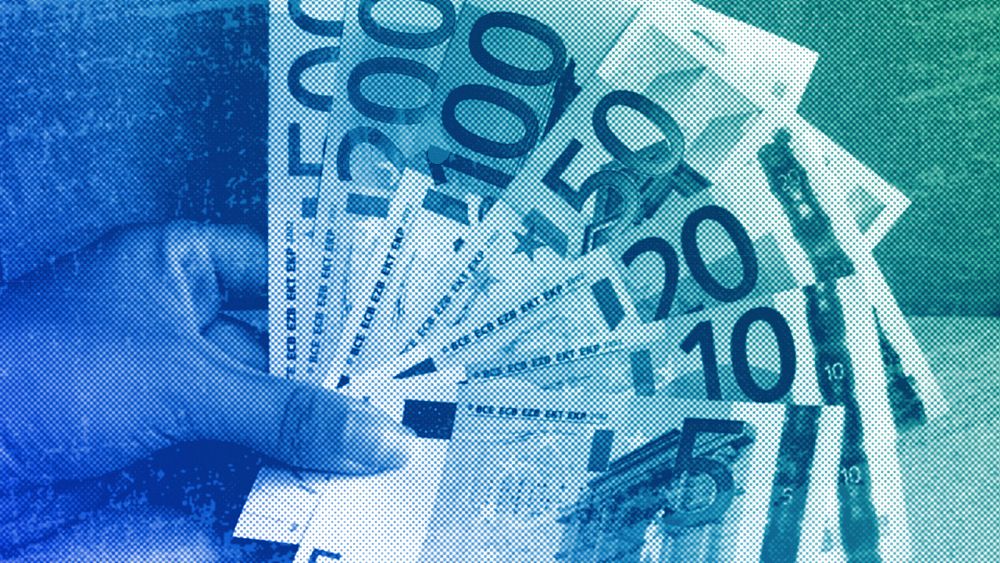
By Marilyn Waite, Managing Director, Climate Finance Fund
It is imperative that the EU develops a capital allocation strategy that moves its cash towards ethical and sustainable banks, Marilyn Waite writes.
The EU had an annual budget of over €158 billion in 2021, sourced mainly from its 27 member states representing over 447 million EU citizens.
This money currently spends the night in some of the world’s most polluting banks — institutions that lend hundreds of billions for fossil fuels, deforestation, and other harmful industries.
Brussels keeps putting its trust in high-polluting banks
To make matters worse, the EU has zero banking relationships with sustainable, ESG impact banks.
For payment services, the EU deposits an average of €20 million each with France’s BNP Paribas, the Netherlands’ ING and Italy’s Unicredit, ignoring climate-friendly, socially-just alternatives such as France’s La Nef, the Netherlands’ Triodos, and Italy’s Banca Etica.
For asset management purposes, the European Commission’s choices are equally unflattering: Credit Suisse, Societé Générale, Deutsche Bank, BNP Paribas, ING and Santander rank amongst the highest in the EU for fossil fuel and deforestation financing.
In the journey towards reducing greenhouse gas emissions by at least 55% by 2030, where the EU chooses to put our money matters, especially since 67% of consumers expect their bank to be sustainable.
The latest IPCC report makes it clear: we cannot solve climate change and continue to expand fossil fuel extraction. Yet that is exactly what many of the EU’s chosen banks do.
Green funds should be entrusted with banks with the right set of values
For each euro on the balance sheet of a bank, that bank can leverage it by at least a factor of three and generally by a factor of ten to make loans.
The European Commission is thus squandering efforts to back the just ecological transition with its choice of banking relationships.
With a significant annual budget funded by citizens, the EU should align with financial institutions that support the block’s ambitious climate targets and the real economy.
The EU can first take steps to re-allocate parts of its bank accounts to sustainable banks, defined as ethical and ESG impact-focused banks, especially as measured by FEBEA membership status, Global Alliance for Banking on Values status, B Corp certification, or a national mission-driven corporation designation.
For example, the capital used to manage the Social Climate Fund, the LIFE Fund, and the Innovation Fund could sit in banks that do not directly undermine the goals of those very instruments.
Depositing taxpayers’ money in ethical banks would bring us closer to net zero, too
By shifting deposits away from fossil fuel banks towards sustainable banks, the EU would realise the full potential of taxpayers’ money, as the emissions for each deposited euro would drop by more than 60%.
This would bring the EU closer to true net zero by merely leveraging already existing resources.
Importantly, moving deposits to the EU’s sustainable banks would not require any additional budget or spending.
On the contrary, it would bolster the existing robust network of sustainability-focused financial institutions throughout the EU that can scale their people and planet-friendly policies.
Over the last decade, sustainable banks have shown returns on assets and equity that double the performance of their conventional counterparts while also significantly limiting their exposure to environmental risks.
Tracking the market uptake of the Partnership for Carbon Accounting Financials (PCAF), ESG impact banks have been worldwide pioneers in accounting for greenhouse gas emissions from loans and investments and have had a positive influence on laggard banks in this regard.
The EU should work towards a socially responsible, safe future
While climate-safe banks are not yet able to absorb 100% of the EU’s money, their capacity is large enough for a significant reallocation of EU funds.
For instance, FEBEA members, which represent only a fraction of the EU’s sustainable banks, manage over €33bn in assets alone.
When these assets are combined with other sustainable banks, such as GLS, UmweltBank, and Triodos, the capacity rises to €61bn.
It is imperative that the EU develops a capital allocation strategy that moves its cash towards ethical and sustainable banks.
Requiring zero additional taxpayer funds, this move would enable the EU’s existing budget to work 10 times as much for a socially responsible and ecologically safe future.
The decarbonisation of the EU’s finance is a powerful climate lever not only because of the direct emission reductions but also because of its potential to systemically transform Europe’s financial sector by supporting climate-safe banks and nudging other economic actors into doing the same.
Marilyn Waite is the Managing Director of the Climate Finance Fund.
_At Euronews, we believe all views matter. Contact us at view@euronews.com to send pitches or submissions and be part of the conversation.
_